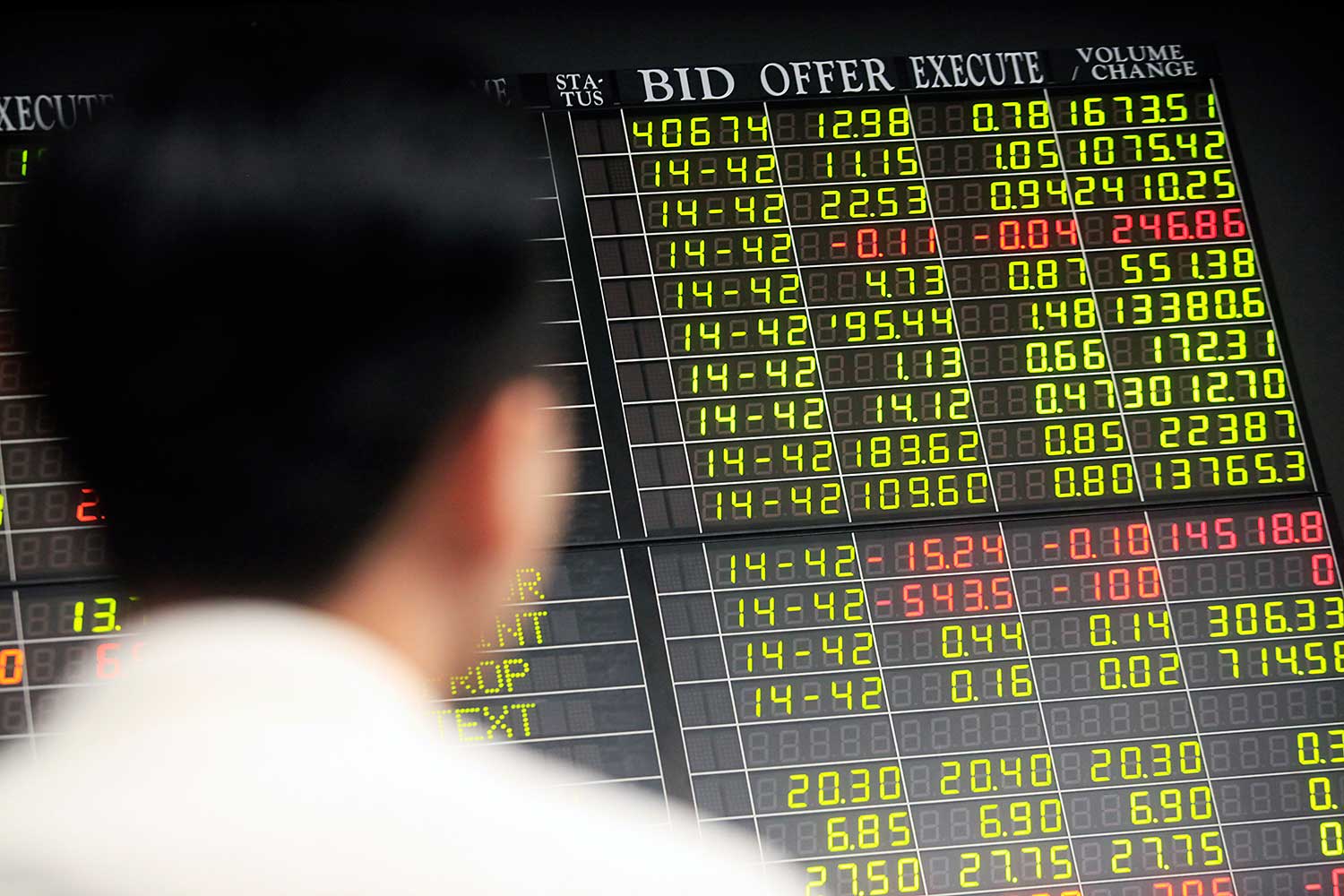
The Stock Exchange of Thailand has fallen further below key psychological supports, suggesting any recovery in the local equity market will be slower than previously anticipated.
Losses have been led by blue chips such as power (continuous tariff cuts pressuring sentiment, although independent producers are not affected as much), banks, electronics and commerce. Medium- and small-cap stocks that had previously moved with market sentiment have also seen steeper-than-usual corrections.
However, investors have been accumulating certain stocks such as recent initial public offerings, beaten-down stocks, and IT counters (following the launch of the iPhone 15) such as COM7, SYNEX, JMART, CPW and SPVI.
We expect the benchmark index to consolidate in the short run to build a new base. The initial support at 1,500 points must hold, otherwise we could see the beginning of a major downtrend towards new lows around 1,470 to 1,480.
We do not expect the market to hit a new low now, but any recovery could take a longer time than previously anticipated as the path would include various phases of consolidation, base building and rebounds.
In terms of a short-term trading strategy, we recommend stocks with low volatility and/or providing returns that align with the market, those with limited downside risk, bottomed-out earnings, and businesses with specific catalysts.
In the medium term, we recommend accumulating on weakness the shares of businesses that will benefit from the new government's policies, such as debt management, retailers and others focused on domestic consumption. Among the positive factors:
- Local political progress: Key resolutions from the inaugural cabinet meeting include: visa-free travel for tourists from China and Kazakhstan until the end of February; electricity tariff cuts to 4.10 baht from 4.45 baht a unit until year-end -- followed by a further cut to 3.99 baht; a diesel price reduction to below 30 baht.
These decisions will be positive for tourism, but negative for energy shares, though in the latter case the impact will be more on sentiment than fundamentals. Investors still need to monitor additional measures that will follow now that the new government has announced its policies in parliament.
In the medium term, we are certain the government will introduce policies to strengthen infrastructure, which will be another key growth engine after long delays. We should see positive progress towards bidding or contract signing for megaprojects, which will be positive for contractors.
- Management guidance: We have compiled management views about expected third-quarter earnings during recent analysts' meetings. Most take a neutral view (50%) with a positive bias (43%) for the third consecutive quarter, mainly from healthcare (high season), medium- to high-end property (solid demand), packaging (revenue and margin recovery), industrial estates (robust land sales), tourism and food (seasonality, more tourists and lower costs).
We noticed that many companies have turned more cautious about the outlook for the remainder of this year. Some 43% of respondents remain upbeat (down from 58% previously).
Over the next 1-2 weeks, ahead of earnings announcements, we recommend investing by focusing on stocks with proven track records as well as positive and realistic guidance on third-quarter performance.
- Window dressing: Institutional investors normally buy stocks in the final week of the quarter for window dressing purposes. However, such attempts of late have tended to be less effective due to various negative factors affecting the market.
- Exchange-rate volatility: We foresee renewed worries over volatile capital flows triggering periodic panic selling by some punters.
- Macroeconomic factors: Although this week's US Federal Reserve decision was in line with expectations, investors must continue to monitor US and Thai inflation figures as they will continue to influence overall market sentiment until interest rates start to drop.
- El Nino: The larger impact from the phenomenon, extending through the first quarter of next year, could ignite volatility in agricultural product prices. Higher prices of rice, sugar cane and sugar could affect supply chains in the food industry.
